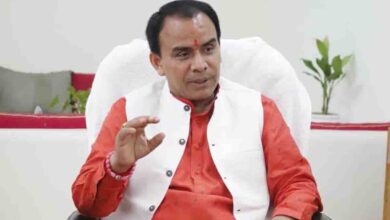Reels and selfies lead individuals to life threatening behaviour: Experts

Saturday, 04 MAY 2024 | PNS | DEHRADUN
The proliferation of reels and selfies on social media platforms has influenced individuals to adopt a more risky behaviour, experts said.
They said this following recent incidents wherein individuals, particularly young adults, lost their lives while engaging in risky activities for the sake of creating content for reels or selfies. To mitigate these risks, they emphasised that imposing limits on screen time and internet usage is crucial. Additionally, instead of focusing solely on forming friendships, the experts recommend that parents need to understand their role in parenting more comprehensively.
According to the psychiatrist at Government Doon Medical College (GDMC) hospital Dr Jaya Nawani, the unrestricted accessibility to the internet and the lack of restrictions on information content have resulted in behavioural changes among young adults. Rather than addiction, the desire for likes and more followers has led people to engage in risky behaviour, sometimes resulting in loss of life. Young adults may not be fully aware of the benefits and drawbacks of social media, often seeking validation by engaging in risky activities in order to gain popularity. She further said that the influence of social media combined with the desire for fame through vlogging and reels can contribute to feelings of depression, anxiety and fear. She stressed on the crucial role of parents in preventing such scenarios by creating an environment at home where they can easily monitor their children’s activities. In addition, parents should regulate their children’s mobile phone usage and educate them about the pros and cons of social media, she said.
Clinical psychologist Pratibha Sharma stated that there has been a significant rise in incidents involving young adults losing their lives due to engaging in risky activities for the sake of creating social media content such as making reels and taking selfies in dangerous locations. She emphasised that many individuals struggle to differentiate between real life and the artificial world portrayed on social media platforms. The pursuit of likes and followers has led to a concerning trend of normalising risky behaviour among youth. Sharma warned that the production and consumption of reels could potentially lead to mental health issues like depression and anxiety. She stressed on the importance of parental involvement in preventing such tragedies, suggesting that parents should prioritise building a strong and supportive relationship with their children to create an environment where open communication is encouraged. Implementing time limits on social media usage can also be an effective strategy to protect children from engaging in dangerous activities online, ultimately safeguarding their well-being, she added.






